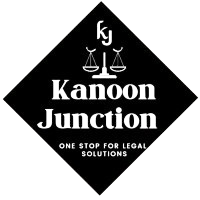Human Trafficking: A Global Human Rights Crisis
Introduction
A terrible reality that affects people all around the world, human trafficking deprives millions of their fundamental human rights. Known as the trafficking of people for the purpose of exploitation, this crime takes many different forms and affects a great number of lives. Human trafficking is still a widespread and deeply rooted problem in spite of major attempts to combat it. This article will examine the various aspects of human trafficking, including its origins, impacts, and current efforts to combat it.
With an estimated 25 million victims globally, human trafficking is a massive issue. These concerning figures highlight how quickly action is required. Trafficking is a worldwide issue with major hotspots in Asia, Africa, Europe, and the Americas. It is not limited to any one area.
Forms of Human Trafficking
Sex Trafficking
The most well-known kind is probably sex trafficking, which involves forcing people into prostitution or other types of sexual exploitation. False promises of relationships or careers are routinely used to attract victims, who then end up in terrible situations.
Labor Trafficking
Forced labour includes making someone work brutal hours for inadequate or no compensation. This type of trafficking is common in sectors like construction, domestic work, and agriculture, where it takes advantage of the weak and desperate for work.
Child Trafficking
When it comes to being trafficked for everything from labour to sexual exploitation, children are among the most vulnerable victims. In certain regions of the world, child soldiers and forced marriages are also terrible realities.
Organ Trafficking
Although it is not as well-known, organ trafficking is a serious problem when victims are tricked or forced into giving up their organs. Victims of this unlawful trade face serious health concerns, and it frequently involves complex networks.
Causes of Human Trafficking
Poverty and Economic Factors
One of the main causes of trafficking is financial difficulty. Those who are desperate for a better life or financial security may fall prey to human traffickers.
Insufficient Knowledge and Awareness
People who are ignorant of the risks associated with human trafficking may be more vulnerable to exploitation because they may not be able to spot the warning signals or know where to turn for assistance.
Demanding Elements
Trafficking is sustained by the desire for inexpensive sexual services and labour. They always figure out a method to provide a market.
Governmental and Intergovernmental Initiatives
The Government of India has provided financial assistance to the States for setting up Anti-Human Trafficking Units at District level. The Government has also signed Memorandums of Understanding with Bangladesh, UAE and Cambodia on prevention of Human Trafficking and has also ratified the United Nations Convention on Transnational Organized Crime (UNCTOC) protocol on Prevention, Suppression and Punishment of Trafficking in Persons, particularly Women and Children.
The United Nations Global Initiative to Fight Human Trafficking (UN. GIFT) was launched on 26 March 2007. UN also has a voluntary trust fund for victims of human trafficking.
Prevention Strategies
To prevent individuals from being exploited, it’s important to recognize the risk factors and indicators of human trafficking. One should educate themselves regarding the concerns and precautions to be taken to avoid human trafficking.
Human Trafficking Day, January 11 must be celebrated wearing blue and spreading awareness regarding the issue and what steps are to be taken in case of need. NGO’s and other support groups could conduct workshops and ‘nukkad nataks’ spreading awareness about the issue and what necessary steps should be taken.
Support for Survivors
• For survivors to recover from the trauma, proper medical and psychological attention is required. They can heal if they have access to quality therapy and healthcare.
•Programmes that offer social support, education, and job training are crucial for assisting survivors in reestablishing their independence and rebuilding their lives.
• Legal aid that assists victims in navigating legal system, pursuing justice, and defending their rights.
The Importance of Public Awareness
Media’s Role in Highlighting the Issue
The media is essential in raising awareness of the problem of human trafficking and influencing public opinion and laws related to it.
How Individuals Can Make a Difference
Every person can contribute to the fight against trafficking by staying informed, supporting relevant organizations, and advocating for stronger protections and policies.
Conclusion
Human rights are fundamental to every person’s life, regardless of their race, nationality, religion, or other status. They are necessary to protect and preserve humanity, and to ensure that everyone can live with dignity and freedom. Global efforts by individuals, communities, governments, and international organizations are needed to address the human rights catastrophe of human trafficking. We may work towards a society free from the horrors of human trafficking by comprehending its complexity, offering support to survivors, and implementing proactive preventative measures.
